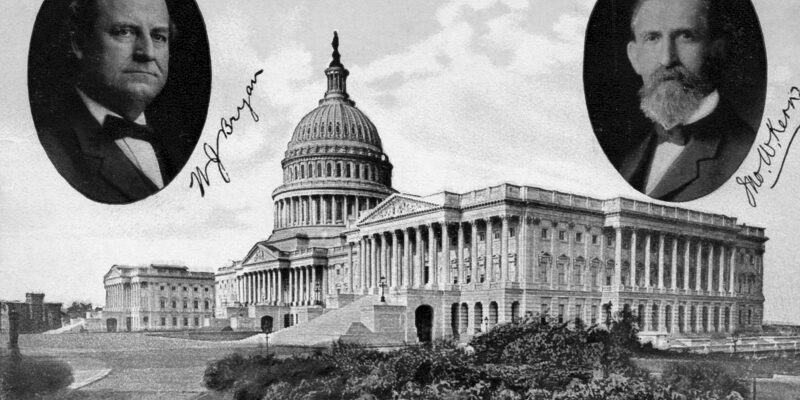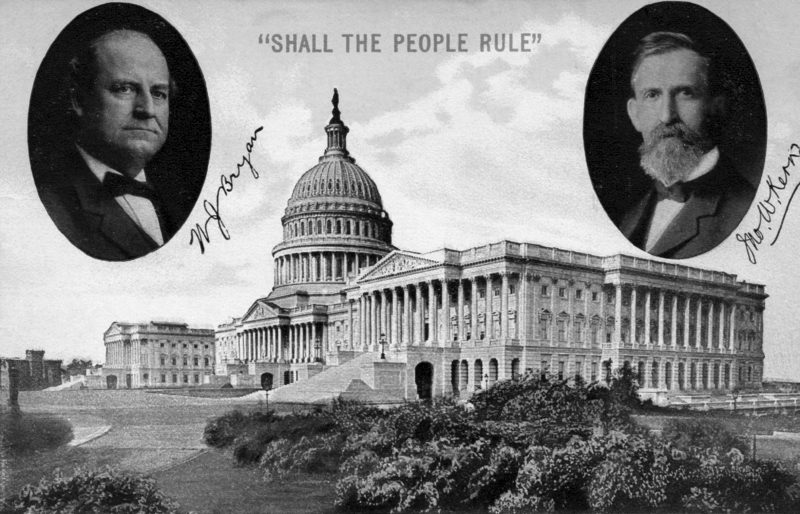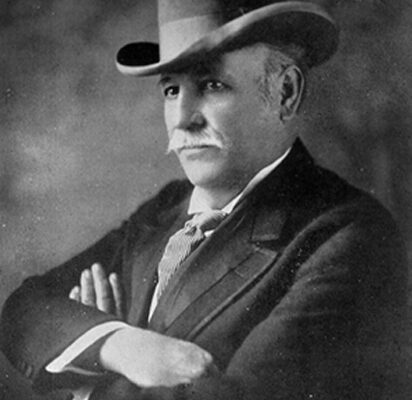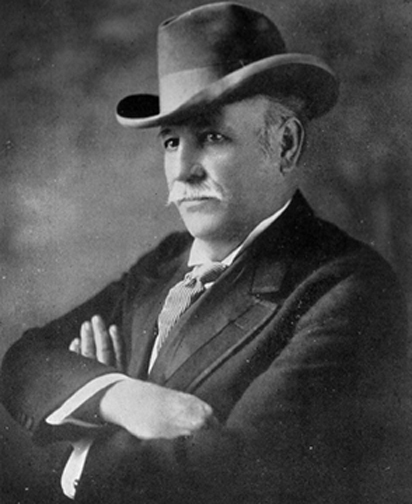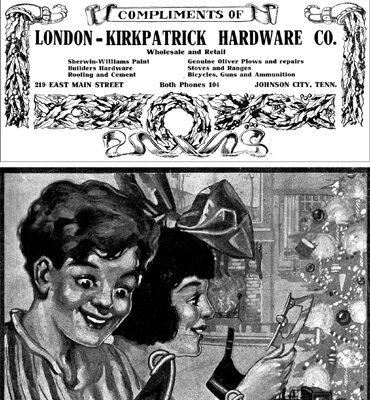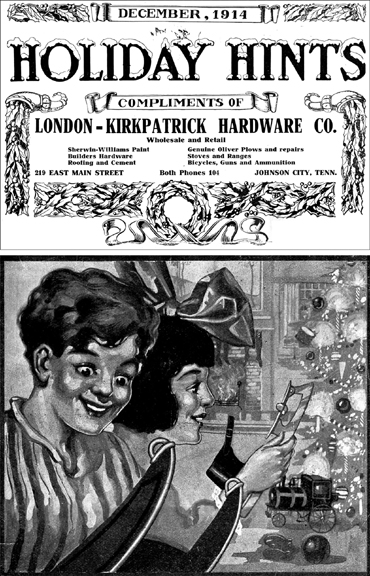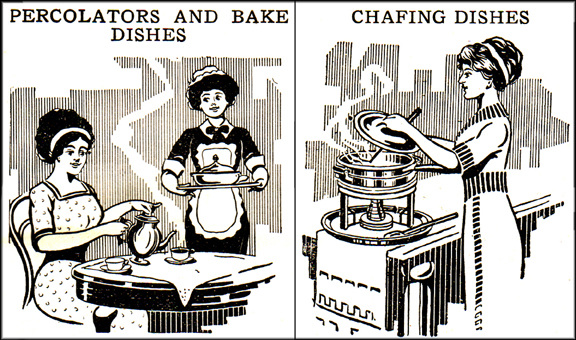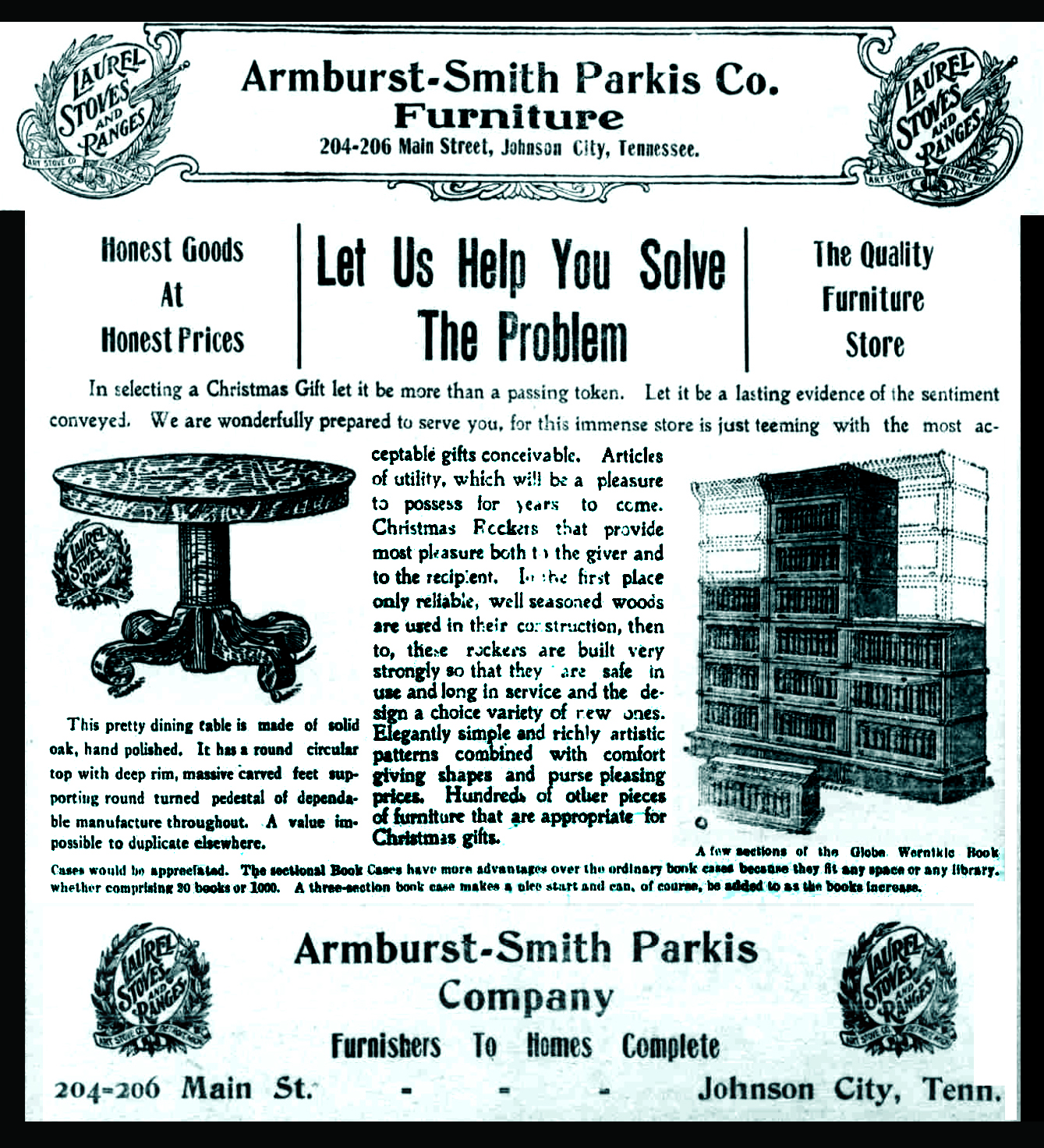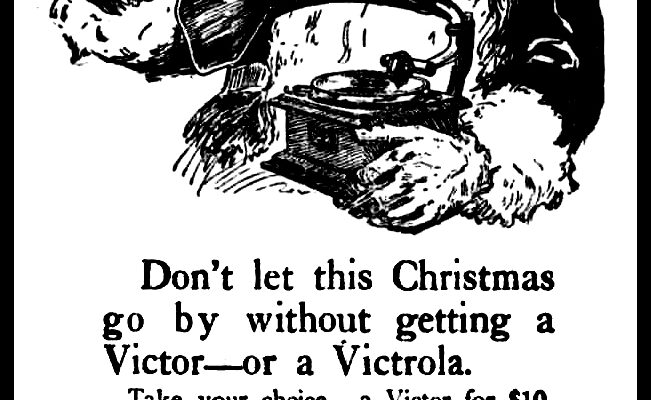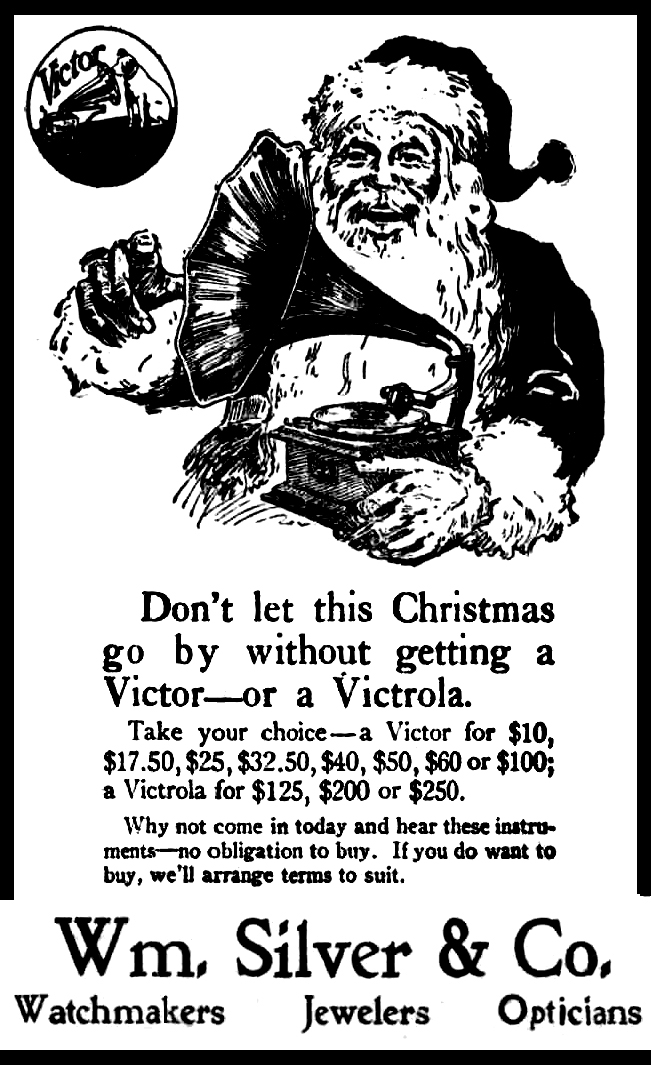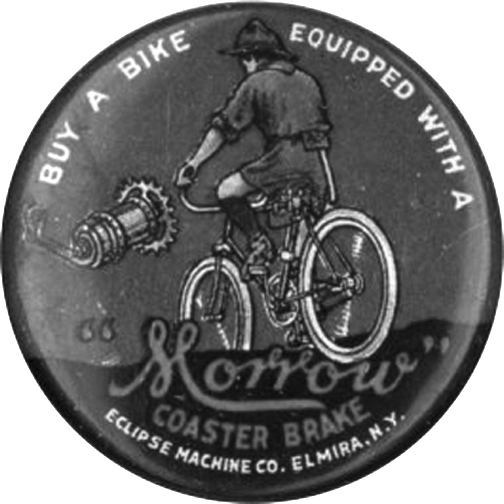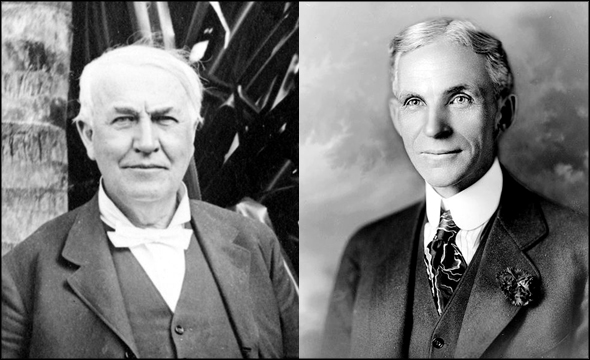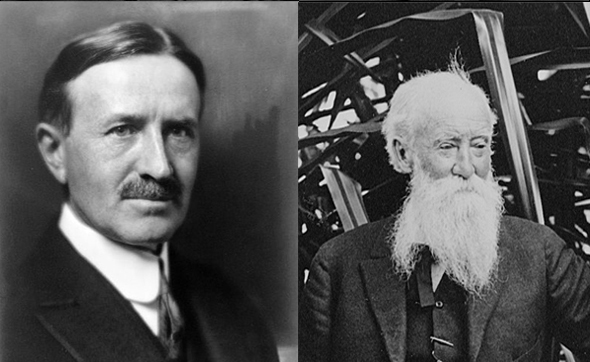Today's feature is the first of two that will address the origin of Johnson City's beautiful Lady of the Fountain. Although it answers several questions about the development of the downtown water fountain, it also presents some facts that are hard to interpret, “history mysteries” as I call them. The information comes from The Comet and is quoted just as it appeared in the newspaper. Any comments I offer are shown in parenthesis. Feel free to send me any comments or questions you might have. The second Lady of the Fountain feature will appear in late February.
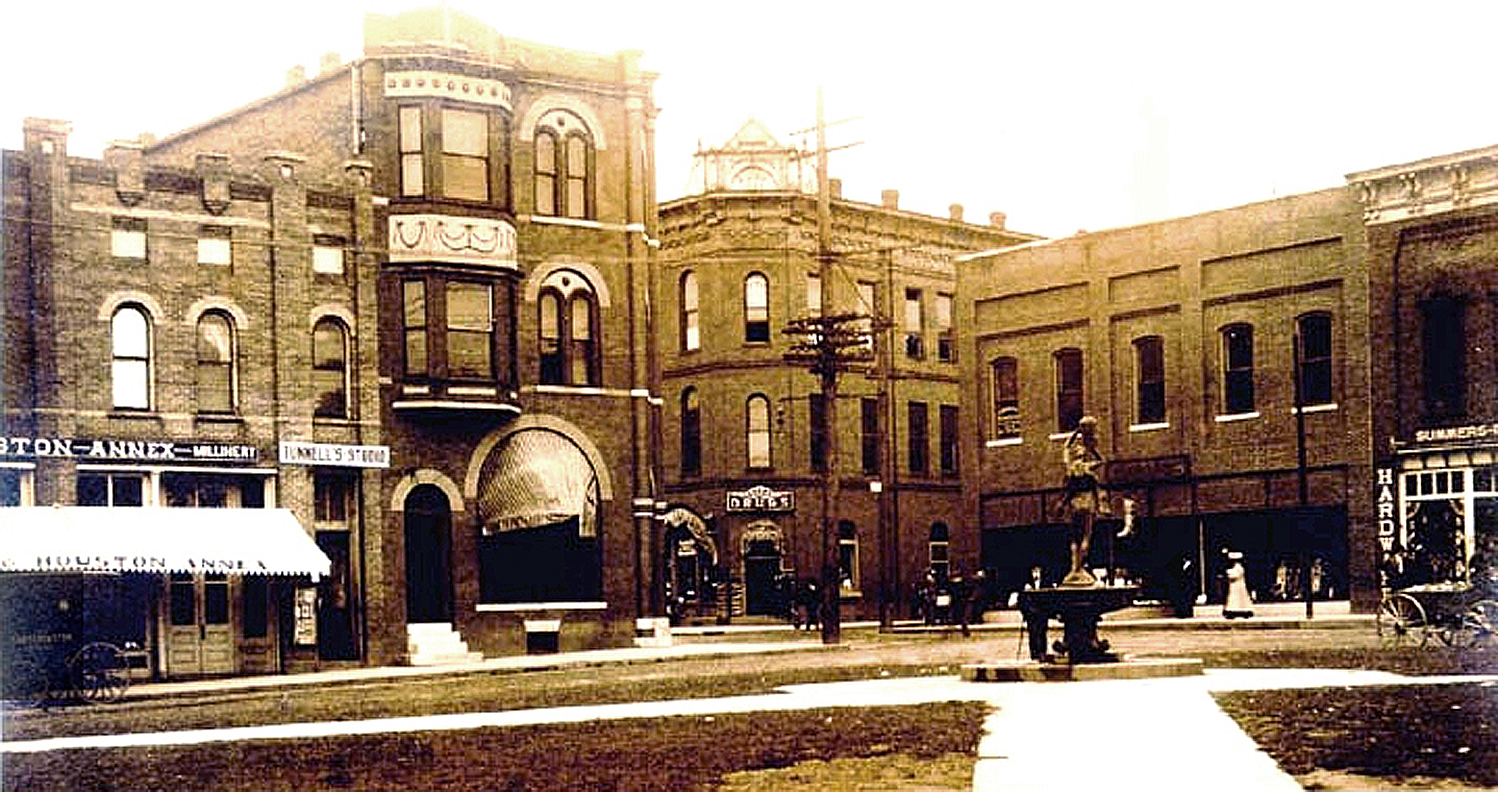
The Lady of the Fountain as She Stands Watch Over Johnson City's Public Square
1894-10-11
“That Fountain, Gift from Judge Hart: We are to have a fountain on Public Square in Johnson City. It is to be a gift from Judge Henry C. Hart. He is going to have it erected and will pay for it from his private purse.
“This is a meritorious step and one dictated by a desire on the Judge's part to not only beautify and adorn Public Square but to afford a convenience to the people of the countryside as well as those of the town and to strangers visiting the city.
“The town and the citizens of the entire country cannot sufficiently thank the donor for his public-spiritedness and solicitude for their welfare, as it will indeed be a boon to them and we await with impatience the erection of this fountain where from the pure waters will flow”
(Note that no mention is made of a Brownlow Fountain or the Lady of the Fountain. It appears to deal with the need of a water fountain on the Public Square.)
1903-12-12
“Tank on Square May Be Used As Brownlow Fountain: Having heard possibly that the tank on the square was unsightly in the eyes of some, the Southern (Railway) has had it repainted and repaired. Perhaps permission would be given by the company now to allow it to be used as the Brownlow Fountain until contributors become more numerous.”
(This is the only mention I can find of the railroad tank being used as the Brownlow Fountain.)
1903-12-17
“The Brownlow Fountain, A Fund to Erect Fountain: At a recent meeting of the Board of Trade, appropriate resolutions were passed in reference to a fountain to be erected on Public Square in honor of our worthy Congressman, Honorable Walter P. Brownlow. It was the sense of the Board of trade to erect this fountain at a cost of $1,000 and to raise this fund by a popular subscription from the people of Johnson City and surrounding community. (Soldiers' home was approved in 1901. Apparently, the honoring of Brownlow with a fountain occurred two years later in 1903.)
“The Board of Trade therefore appointed a committee of ways and means to which committee the matter of raising the funds has been instructed, as follows: S.H. Pouder, Chairman; James A. Summers, secretary; P.M. Ward, treasurer; G.T. Wofford; and W.G, Mathes.
“For the convenience of the public, the committee designated J.C. Campbell as a solicitor at the post office and S.A. Byrd at the Soldiers' Home.
“The idea of building a fountain on the square is one that has been strongly endorsed for years but never has it struck so popular a vein of sentiment as when the question of erecting it in honor of Congressman Brownlow was mentioned. That it is an appropriate token of the high esteem in which Col. Brownlow is held by our people goes without saying.
“The people feel that they should do something to show their appreciation and gratitude for the many good things which Col. Brownlow has done for this Congressional district and chief among which is having erected in this city the National Home for disabled Volunteer Soldiers.
“Now that the people have an opportunity to show their gratefulness for so worthy a congressman, they can do so in the matter of this popular subscription fund to build the Brownlow fountain.
“The maximum subscription from any one individual is set at $10, so that any amount up to $10 will be received. This plan is adopted to make the subscription popular and one that can be reached by any individual. All subscriptions will be duly acknowledged through the public press.”
1903-12-24
“May Elect Fountain to Honor Congressman Brownlow: Johnson City may erect a fountain in honor of Congressman Brownlow, who has done so much for the town. In the event it is erected, the editor of the Hardeman Free Press should be engaged to deliver the dedicatory speech. He is a fountain that spouts pure water all the time.”
1904-04-28
“Southern Tank Could be Used as Brownlow Fountain: Having heard possibly that the tank on the square was unsightly in the eyes of some, the Southern Railway has had it repainted and repaired. Perhaps permission would be given by the company now to allow it to be used as the Brownlow Fountain until contributors become more numerous.”
1904-05-26
“Where Is the Brownlow Fountain?: Where is the Brownlow fountain? Has it dried up? We notice a little green spot on the north side of Market street beside the railroad. Great trees from little acorns grow. Wanted more of it.”
1908-09-17
“Tag Day Next Saturday: Saturday, September 19, is tag day and you are expected to give your mite to help build a fountain on Public Square. The good women of Johnson City are back of the enterprise and it is going to be a success. The more you contribute, the handsomer the fountain will be. (Tag day referred to the soliciting of contributions to a fund, with each contributor receiving a tag.)
“A water color sketch of how the square will look when beautified can now be seen in the William Silver & Co.' show window. It is a very handsome piece of work and was drawn by The Comet's artist, W.E. Burkholtz, perhaps the cleverest artist in the South. It is a beauty and if you will look at it, you will readily give a $5 or $10 to speed the good work.
“The Comet will have an engraving made for publication so that any persons away from Johnson City may contribute for old acquaintance sake.”
1908-09-24
“Tag Day A Success: Last Saturday was tag day in Johnson City and the weather was ideal. A large number of industrious ladies, young and younger, worked hard all day and as a result $530 was added to the fund being raised to beautify Public Square. It was a great day's work and the satisfaction that comes from labor well performed will be the only reward until a beautiful square shall smile upon them in the near future and hence forth.
“Miss Lila Taylor won first prize, $5 in gold given by Summers-Parrott Hardware Co., and presented it to the fountain fund. The second prize, a pair of $3.50 shoes offered by Hannah & Faw, west to Miss Bess Slaughter. Miss Mary Hardy won third place, a silver belt pin offered by William Silver & Co., valued at $1.50 and gave the fountain fund the equivalent in cash.”



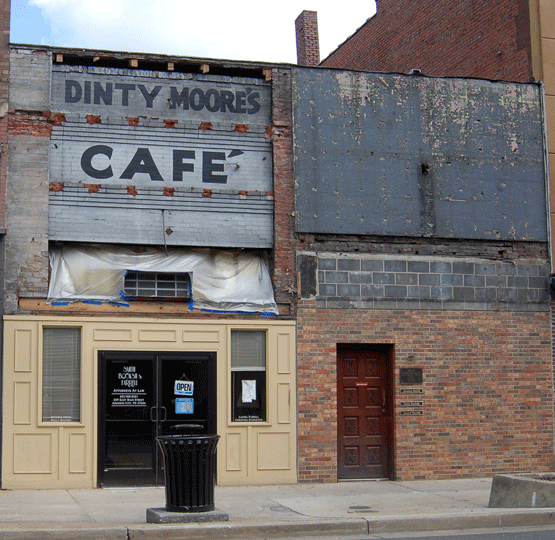

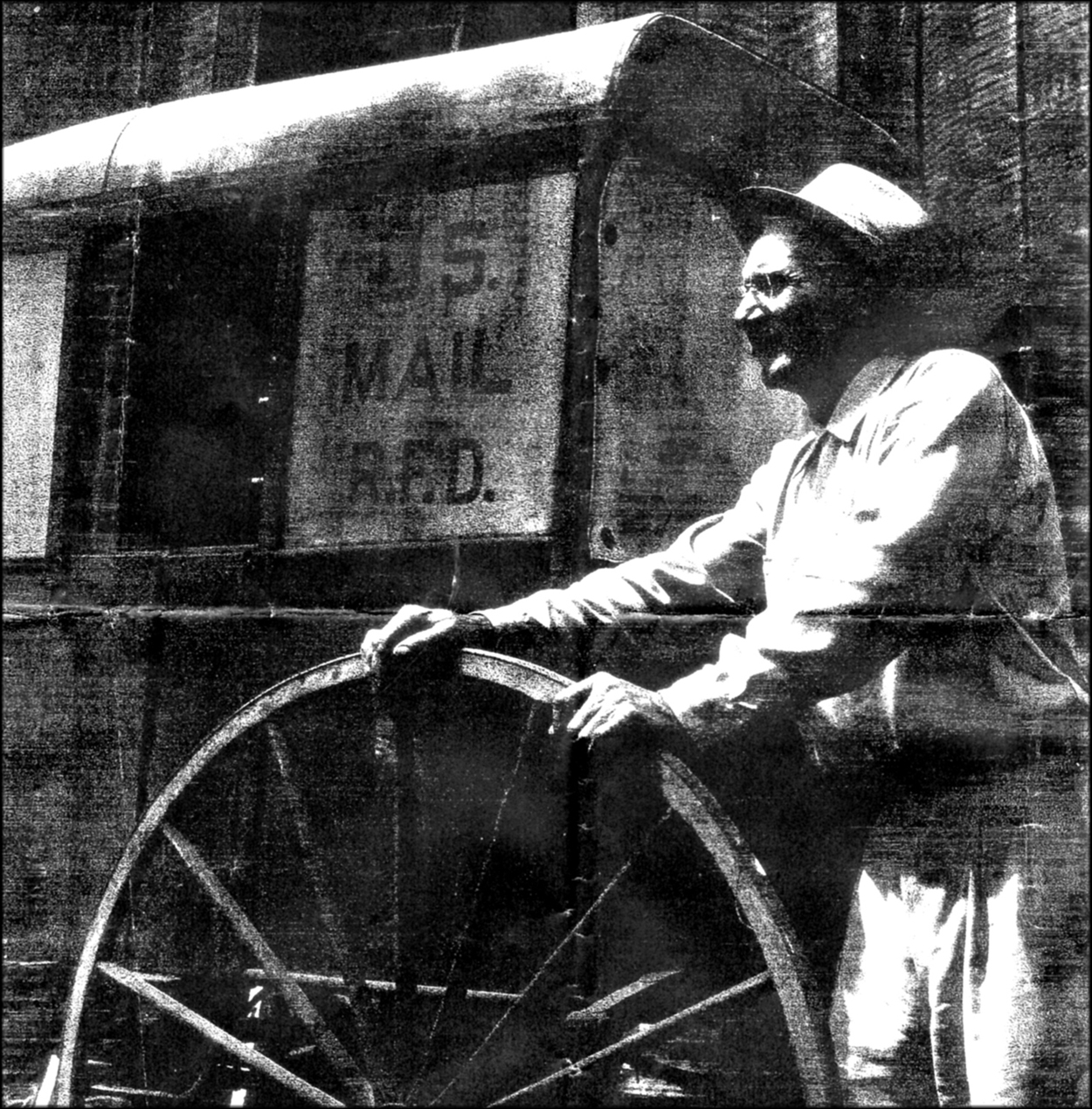
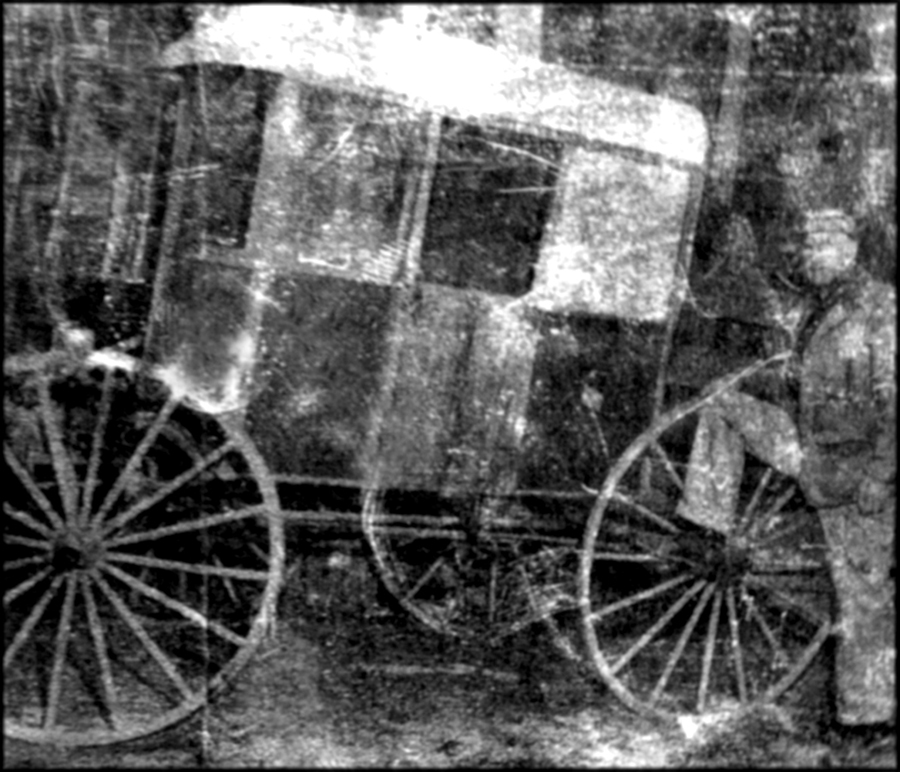
-573x400.jpg)
.jpg)
